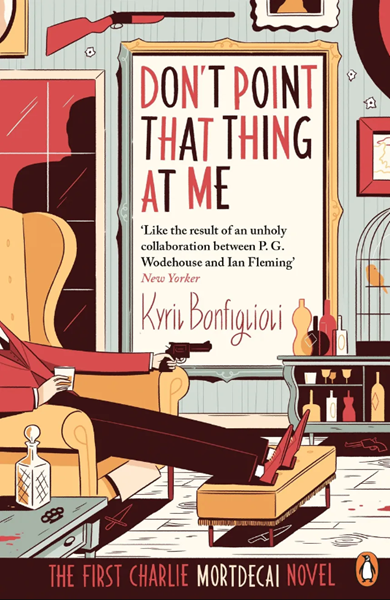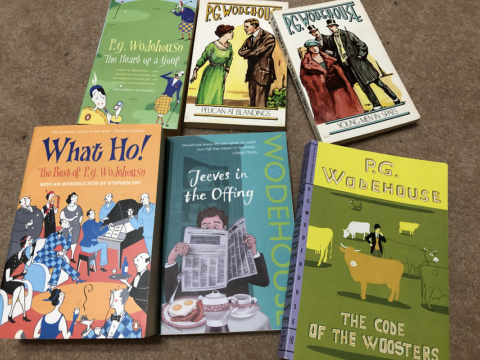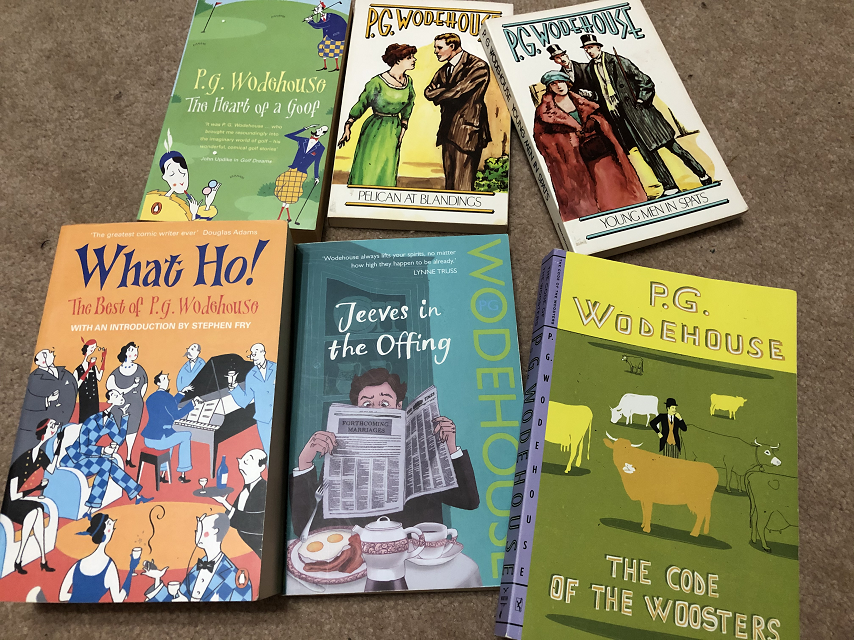At The Conservative Woman, Alan Ashworth recommends a book by one of P.G. Wodehouse’s disciples, but only for those who are ready for Plum-like wit with “lashings of sex, violence, murder and drunkenness”:
If, like me, you have read every line of PG Wodehouse’s 90-odd books – at least half a dozen times each in the case of the Jeeves novels – your attention might be piqued, if piqued is the word I seek, by one of the Master’s disciples. His name is Kyril Bonfiglioli.
In a trilogy about an art dealer named Charlie Mortdecai based loosely on himself, Bonfiglioli, or Bon as his friends and enemies called him, combines a Woosterish turn of phrase with lashings of sex, violence, murder and drunkenness. Mortdecai is snobbish, greedy, lustful, unscrupulous, untrustworthy, gloriously politically incorrect and hilarious to boot.
The first book, Don’t Point That Thing At Me, was published in 1973, two years before Wodehouse died. In a short foreword, Bon writes: “This is not an autobiographical novel: it is about some other portly, dissolute, immoral and middle-aged art dealer.”
The action begins with Mortdecai in his Mayfair mansion burning a gilt picture frame in the fireplace. He, of course, has a sidekick whose name begins with J but Jock has little in common with Bertie Wooster’s loyal manservant. As Bon puts it, “Jock is a sort of anti-Jeeves; silent, resourceful, respectful even, when the mood takes him, but sort of drunk all the time, really, and fond of smashing people’s faces in. You can’t run a fine-arts business these days without a thug and Jock is one of the best in the trade … his idea of a civil smile is rolling back part of his upper lip from a long, yellow dogtooth. It frightens me.
“Having introduced Jock – his surname escapes me, I should think it would be his mother’s – I suppose I had better give a few facts about myself. I am in the prime of life, if that tells you anything, of barely average height, of sadly over-average weight and am possessed of the intriguing remains of rather flashy good looks. (Sometimes, in a subdued light and with my tummy tucked in, I could almost fancy me myself.) I like art and money and dirty jokes and drink. I am very successful. I discovered at my goodish second-rate public school that almost anyone can win a fight if he is prepared to put his thumb into the other fellow’s eye.”
Charlie is receiving a visit from a fat policeman named Martland who suspects him, correctly, of involvement in the theft of a Goya from Madrid five days earlier.
“Somewhere in the trash he reads, Martland has read that heavy men walk with surprising lightness and grace; as a result he trips about like a portly elf hoping to be picked up by a leprechaun. In he pranced, all silent and catlike and absurd, buttocks swaying noiselessly. ‘Don’t get up,’ he sneered, when he saw that I had no intention of doing so. ‘I’ll help myself, shall I?’
“Ignoring the more inviting bottles on the drinks tray, he unerringly snared the great Rodney decanter from underneath and poured himself a gross amount of what he thought would be my Taylor ’31. A score to me already, for I had filled it with Invalid Port of an unbelievable nastiness. He didn’t notice: score two to me. Of course he is only a policeman.”
Martland features heavily in the ensuing romp, which involves several murders, a journey across America in a Rolls-Royce, a nymphomaniac millionairess and a remote cave near Silverdale, Lancashire.








